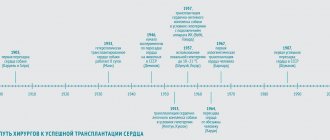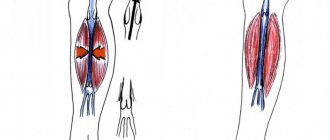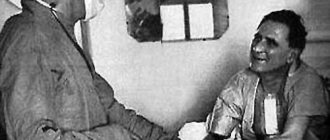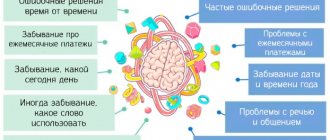Why is there not enough donors in Russia?
And even with the existing presumption of consent, Russia has a catastrophic shortage of donors.
The wait for a kidney can last for many years. On an artificial heart, which is suitable only for a few, a person can survive for a year, two or even three. And severe complications result in high mortality. At the same time, lung and pancreas transplants still remain very rare operations. But one donor can save at least eight lives. “We have only 32 regions involved in transplantation, and we are now bending over backwards to increase their number. We travel around the regions, talk with hospitals and administrations. We say that the organ resource is disappearing - people are waiting for these organs. We cannot talk about deficit as such. It is correct to talk about the lack of administrative resources for organizing donor programs,” assures Sergei Gauthier, director of the National Medical Research Center for Transplantology and Artificial Organs.
There is no liability for hospitals where donors appear. No one will suffer any punishment if a person does not become a donor, although he could become one.
— Transplantologists are people who would like to have this resource to save the population. But we cannot organize this process. This is the responsibility of the chief doctors of hospitals where the death of certain patients is declared. This mechanism works with great difficulty,” says the doctor.
His colleague Alexander Chernyavsky is convinced that the reason lies in the fact that such hospitals have no interest in developing donation.
— There are laws, the regulations have been adopted. But failure to comply with them is not punishable by anything, no one is responsible for this - for the fact that we do not have enough donor organs,” Alexander Chernyavsky is dissatisfied. — We calculated how many potential donors there could be in Novosibirsk, for example. There are certain formulas that are known all over the world and are used for calculations. And in Novosibirsk we have approximately 50 to 70 real donors per year. I think in this case we could generally solve the problems with providing care to patients with kidney failure. This is approximately 140 kidney transplants per year.
If we consider this issue only from a financial point of view, then experts convince us that organ transplantation is much more profitable for the state than the same dialysis that patients with kidney failure must undergo.
“If our donor bases worked effectively and efficiently enough, we could abandon dialysis altogether. We think only about immediate costs, and when we look at the fact that this patient needs to undergo dialysis for 10–15 years, we understand that these are huge sums. They add up to billions of rubles. A patient who receives a kidney transplant costs the state several times less. And this has been calculated for a long time. We don't know how to count money at all.
Contraindications for surgery
The operation may be contraindicated in the following cases:
- Severe pulmonary hypertension (high pressure in the pulmonary artery),
- Severe diabetes mellitus with damage to blood vessels, kidneys, retina,
- HIV infection, active tuberculosis process,
- Acute infectious diseases,
- Severe renal and liver failure,
- Systemic autoimmune diseases (systemic lupus erythematosus, rheumatoid arthritis, etc.),
- Severe chronic obstructive pulmonary disease,
- Alcohol or drug addiction,
- Oncological diseases,
- Mental illnesses in the acute stage.
Pediatric transplantation and minor donors
The most difficult issue of transplantation in Russia remains child donation. By law, it is permitted with parental consent, but so far there has not been a single minor donor in our country. If a child needs a liver or kidney, doctors can transplant them from an adult donor or even from relatives. But in the case of a heart transplant, everything is much more complicated. The child must grow to the point where he can be saved with the help of an adult organ. And this is an age of approximately 12–14 years and older.
— During heart transplantation, we greatly depend on anthropometric parameters. If we have a teenager weighing more than 30 kilograms, this usually allows us to place the heart of an adult deceased in the chest and solve the problem,” says Sergei Gauthier, chief freelance transplantologist at the Ministry of Health of the Russian Federation. “But if we are talking about a small child, then we are simply powerless.” Despite the fact that everything is spelled out in the law and there is an order from the Ministry of Health, we are absolutely blocked by the actions of pediatric resuscitators. Many parents understand the need for organ removal. You can talk to them about it. But pediatric resuscitators experience mental frustration about this. They cannot cross the threshold of declaring the death of a child for subsequent donation.
Taking an organ or part of it from relatives, although it saves lives, can be dangerous for the donor himself. He will have to live without one kidney or part of his liver. According to doctors, such operations cannot take place without leaving a trace. That is why experts insist on the development of posthumous donation.
— The biggest advantage of related transplantation is the independence of this procedure from the presence of an organ from a person who has died. This operation can be planned and carried out within a specific time frame. This is the biggest plus,” explains Ivan Porshennikov, head of the organ transplantation department of the Novosibirsk Regional Clinical Hospital. — The biggest disadvantage is that a living, healthy, innocent person can die during the removal of a fragment of an organ. The risks of this event are extremely low, but nevertheless, this has happened in world practice. This is a statistic and there is no escaping it. The most correct way in transplantation is the development not of related transplants, but of organ donation.
How is the operation performed?
Heart transplantation begins with removing the organ from the donor’s body and placing it in a cardioplegic solution for a period of no longer than 4-6 hours. At this time, preoperative preparation of the recipient is underway (administration of sedative and analgesic drugs - premedication). Next, in an operating room under general anesthesia, an incision is made into the recipient's anterior chest wall, large vessels are connected to a cardiopulmonary bypass machine (ACB), which performs the functions of an “artificial heart” during the operation.
After this, the right and left ventricles of the heart are cut off, while the atria are preserved. While maintaining the own atria, the sinus node remains active, setting the rhythm of heart contractions and being the pacemaker.
After the donor's atria have been sutured to the recipient's atria, a temporary pacemaker is installed to ensure adequate heart contractions after surgery. The chest is sutured and an aseptic bandage is applied. The operation takes several hours, sometimes no more than six.
The next stage of heart transplantation is immunosuppressive and cardiotonic (supporting cardiac activity) therapy. Immune suppression (mainly with the help of cyclosporine) is necessary to prevent transplant rejection reactions and improve its engraftment.
Recipient heart removal and transplantation scheme:
Video: progress of heart replacement surgery (18+)
Complications
Complications in the early postoperative period include bleeding from the surgical wound and infectious complications. The first can be quite successfully treated by reopening the wound and suturing the source of bleeding. Prevention of infectious (bacterial, fungal and viral) complications is the prescription of antibiotics and adequate immunosuppression regimens.
In the long-term postoperative period, the development of transplant rejection and dysfunction of the coronary arteries with the development of myocardial ischemia of the donor heart is possible.
Forecast
The prognosis after surgery is favorable - more than 90% of patients survive the first year safely, about 60% survive the first five years, and slightly less than half of those operated on (45%) live with a donor heart for more than 10 years.
Is there a chance for change? What will the new law change?
The current law on transplantation was adopted almost 30 years ago. And there are many gaps in it, which also turn people against transplantation. The new law should create a single waiting list throughout the country, as well as a register of refusals and consent for posthumous donation. This should make the system more transparent - both for patients and doctors. And also the law should completely exclude situations where an organ was taken after the death of a person who did not want it.
The document also defines the time during which relatives must make a decision whether or not to authorize the transplantation. An entire chapter is devoted to posthumous donation - No. 3. Article 14 states that relatives can declare that they disagree with the removal of organs from the deceased. They are given two hours to do this, and with such a statement the body will not be touched.
At the same time, to resolve disputes on this issue, when a person agreed to donation while still alive, and relatives opposed it, a separate article No. 15 was prescribed. It states that if a relative does not agree that the organ be taken away from the deceased, and In this case, the patient himself gave such consent during his lifetime, then the opinion of the relative will not be taken into account. They will take the organ. And vice versa.
The new law specifies in detail the mechanism of child donation. Doctors will have to obtain the consent of one of the parents. Moreover, if the opinions of the father and mother differ, then the transplant will be impossible. It is also prohibited if the possible donor is an orphan. The new law has been discussed for more than five years. But it has not yet been accepted.
— The new law, if adopted, will contain elements of control over all components of transplantation. We are talking about including waiting lists in such a control system and what we constantly talk about is the register of lifetime expressions of will. In fact, we need a failure register,” explains Sergei Gauthier.
No matter how many problems there are in transplantology, doctors in Russia save hundreds of lives. While waiting for the new law, they are trying to convince people that a transplant is the only chance for life for many.
“They often say that it’s terrible, that people hope for the best and expect someone’s death. Of course this is not true. They don't expect any death. They are waiting for the opportunity to be helped. It is impossible to influence the mortality of other people with such expectations. We can all find ourselves in a situation where today we are alive and well, and tomorrow we suddenly need a transplant, God forbid. Therefore, we need to treat each other with respect and try to help each other,” says Alexander Bykov, chief transplantologist of the Novosibirsk region.
Preparing for surgery
When a patient is referred to a transplant center and the decision is made to place him on the waiting list for a heart transplant, he is assigned an evaluation plan. Necessary tests include:
- Fluorography or x-ray of the chest organs,
- Blood tests for markers of HIV infection, viral hepatitis, syphilis,
- Clinical blood test, determination of coagulation system and blood group,
- General urine analysis,
- Ultrasound of the heart, ECG, if necessary - CAG,
- Examination by a cardiac surgeon,
- Examinations by an ENT doctor and dentist (to exclude foci of chronic infections in the nasopharynx and mouth),
- Examination by a gynecologist or urologist (for women and men, respectively).
In order to be admitted to the transplant center for surgery if a donor is found, the patient must always have originals and copies of the following documents on hand:
- Passport, medical policy, SNILS,
- An extract from the sending institution with the results of the examination,
- Referral from a medical institution at the patient’s place of permanent residence.
Three more important texts about organ transplantation
Almost 500 people with organ transplants now live in the Novosibirsk region. We talked to three Siberians and found out how their worldview changes after walking on the very edge, whether it’s hard to take pills by the handful, and what they believe.
In March, the NHS told how, thanks to one donor, four people received a chance at a new life. The child received part of the liver, the man received the heart, and the elderly received the cornea and the ability to see. At the Novosibirsk Regional Hospital, patients got to know each other, thanked the doctors and told their difficult stories.
In early August, Novosibirsk resident Tatyana Mankova went to a party, after which she felt unwell. The last thing she remembers is how she ended up in an infectious diseases hospital. The next memory is how she woke up in the Meshalkin clinic and heard from the doctors that she had received a heart transplant. Tatyana was shocked and couldn’t believe it. Then she found out that she miraculously survived. We talked to her about what it was like to accept a “strange” heart, what difficulties she is currently facing and how her attitude towards life has changed.
How long should I wait for surgery?
In order for a patient to receive a new heart, a waiting list must be created at the transplant center. Such centers cooperate with medical institutions where possible donors can potentially be observed - trauma hospitals, neurological hospitals, etc. Periodically, the center sends a request to hospitals about the availability of a possible heart donor, and then compares those in need of a transplant and available donors according to the above selection criteria. The patient receives a referral to the transplant center from the attending physician - a cardiologist and/or a cardiac surgeon.
After a waiting list has been created, a significant amount of time may pass, and if a suitable donor is not found, the patient may die of heart failure without receiving surgery. If a donor is found, the operation will be carried out in the coming weeks.
Due to the fact that the main indication for CHF is the patient’s predicted survival of less than one year, it is necessary to look for a donor during these critical periods.
Postoperative prophylaxis
Despite a number of limitations, patients live fully after a heart transplant, and their quality of life becomes much higher. There are cases where patients lived 15 years or more, observing the following preventive measures:
- exclusion of serious physical activity;
- regular walks in the fresh air;
- adherence to sleep, rest and nutrition regimes;
- regularly taking medications prescribed by a doctor;
- avoiding sudden temperature changes;
- eating food that has been heat-treated.
It is also recommended to avoid places where large numbers of people gather. This helps to avoid psychological stress and respiratory diseases that can be “caught” at mass events. Subject to these restrictions, the patient can lead a normal life without arrhythmia, shortness of breath and edema.
Heart transplant from the perspective of religion
Previously, when transplantation was just beginning to develop, representatives of various faiths had an ambiguous point of view on heart transplantation. In particular, representatives of Christianity considered such an operation not a godly act, because in fact, a person’s still “living” heart is taken away, and a person can come out of a coma even after several months (casuistic cases in medicine). However, due to the fact that doctors clearly distinguish between the concepts of “coma” and “brain death”, in recent years more and more clergy are saying that serving after one’s death to save another human life is the true purpose of a Christian, because at the heart of this teachings lies the concept of sacrifice. Isn’t sacrificing your heart a benefit for another person?










